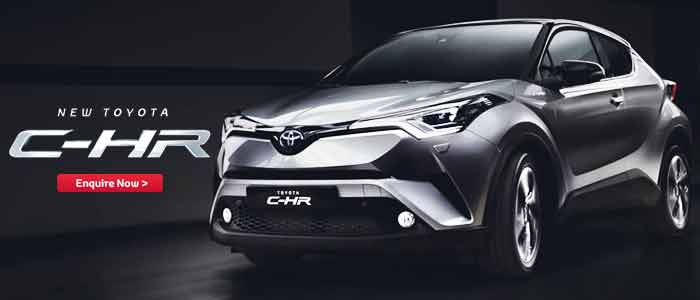Engine no-start diagnostic • How to check the battery • Why the car won`t start
Note, the information contained in this guide is for educational purposes only and cannot substitute for the advice of professional mechanic or an authorized dealer. Don`t attempt to service your car if you don`t have proper knowledge and tools, you can be injured and your vehicle could be damaged. Take your car to a dealer or a repair shop.
Only a few basic things are necessary for the engine operation
1. Fuel (To be exact proper air/fuel ratio, normally it is about 14/1)
2. Spark (in an appropriate moment)
3. Proper timing (the valves should open and close only inappropriate time)
4. Compression in the cylinders (Normal compression is 120 – 170 psi. The engine won`t start if the compression is lower than 70 – 80 psi.)
Plus, to start the engine, the battery, the starter and the starter circuit should be OK.
– Do you hear the cranking sound when you`re trying to start your car? Yes No )
– When you switch the ignition ON before starting a car, does the “check engine” light come ON? (Yes No )
– When you switch the ignition ON, do you hear fuel pump buzzing sound from the gas tank area? (Yes No )
Before your engine died, did you experience any prior events such as:
– leaving the lights ON overnight (Yes No)
– driving through a deep puddle, or washing the engine compartment? (Yes No)
– trying a jump start? (Yes No)
– having only a little fuel in a tank? (Yes No)
– having had the engine repaired recently? (Yes No)
– the engine was overheated? (Yes No)
– extremely low oil pressure? (Yes No)
– unusual noises such as knocking, pinging, whistling? (Yes No)
– smoking from the exhaust pipe? (Yes No)
– the strong smell of gas? (Yes No)
Now, let`s try again. Turn off the radio, try to crank the engine one more time, and listen carefully. Is the cranking sounds different than it used to be? If it`s different, does it looks like the engine being cranked by the starter too slowly? (Yes No)
Is the engine being cranked too fast? (Yes No)
![]() If you don`t hear the cranking sound when you`re trying to start your car, means that starter doesn`t work – something could be wrong with the starter, starter wires, relay, or the battery is dead. Also, check battery terminals, they could be corroded or loose.
If you don`t hear the cranking sound when you`re trying to start your car, means that starter doesn`t work – something could be wrong with the starter, starter wires, relay, or the battery is dead. Also, check battery terminals, they could be corroded or loose.
![]()
![]() Discharged or dead battery is one of the possible reasons for a car not to start. Very common is the situation when we forget to turn lights OFF overnight (for example, dome light) which causes the battery to discharge. In this case, when attempting to start a car, all you will probably hear will be clicking noise – there won`t be enough power to turn the starter. Here is the simple way to check if the battery is discharged: Turn the ignition on, with the engine off, switch the windshield wipers on. If they move way too slowly, much slower than usual, the battery is probably discharged.
Discharged or dead battery is one of the possible reasons for a car not to start. Very common is the situation when we forget to turn lights OFF overnight (for example, dome light) which causes the battery to discharge. In this case, when attempting to start a car, all you will probably hear will be clicking noise – there won`t be enough power to turn the starter. Here is the simple way to check if the battery is discharged: Turn the ignition on, with the engine off, switch the windshield wipers on. If they move way too slowly, much slower than usual, the battery is probably discharged.
If the battery is relatively new, it can be recharged. All you need to do is to boost your car and let the engine run for a while to charge the battery.
However if your battery is more than three-four years old, you will probably need to buy a new one. Sometimes, an old battery may even die with no apparent reason, even if the day before it was OK.
![]() When you switch the ignition ON before starting the car the “Check engine” light supposed to come ON indicating that engine computer is powered. If you won`t see the “Check engine” light after switching the ignition ON, there is no power coming to the engine computer. It might be a broken wire (common problem on 2001 – 2002 Nissan Sentra, for example) or faulty relay, burnt fuse, etc.
When you switch the ignition ON before starting the car the “Check engine” light supposed to come ON indicating that engine computer is powered. If you won`t see the “Check engine” light after switching the ignition ON, there is no power coming to the engine computer. It might be a broken wire (common problem on 2001 – 2002 Nissan Sentra, for example) or faulty relay, burnt fuse, etc.
![]() On most newer vehicles with fuel injection, when you switch ignition ON the engine computer runs a fuel pump for a few seconds to pump initial gas pressure. You can hear it from the gas tank area – it`s like a buzzing sound. It`s not very loud and the gas pump works only for a second or two after switching the ignition ON so you may need someone`s assistance checking this. If there is no buzzing sound, something might be wrong with the fuel pump or its electrical circuit – bring your vehicle to the garage or a dealer.
On most newer vehicles with fuel injection, when you switch ignition ON the engine computer runs a fuel pump for a few seconds to pump initial gas pressure. You can hear it from the gas tank area – it`s like a buzzing sound. It`s not very loud and the gas pump works only for a second or two after switching the ignition ON so you may need someone`s assistance checking this. If there is no buzzing sound, something might be wrong with the fuel pump or its electrical circuit – bring your vehicle to the garage or a dealer.
CAUTION: Never try to fix or replace a fuel pump by yourself, it`s located in the gas tank, and the car can catch fire if not following certain precautions. Bring your car to a repair shop
![]() If you drove over a puddle, just before your vehicle died, the water could shorten the ignition wires.
If you drove over a puddle, just before your vehicle died, the water could shorten the ignition wires.
CAUTION: Never touch the ignition wires, coil or distributor when the ignition is ON or the engine is running, and be careful, the engine is probably very hot!
Switch the ignition off, open the hood and check the spark plugs wires (check the picture), distributor and spark plug caps. They shouldn`t be wet.
If they are wet, turn the ignition off. With the ignition off, dry the ignition wires, distributor and spark plug caps with a clean rag or tissue. Now try to start the engine with fully pressed accelerator pedal because your engine may be flooded with gas.
![]() If your engine died after you tried a jump start it may be electronic related problems. For example, if you connect accidentally the wires from other cars to your battery the wrong way (“+” to “-” and “-” to “+” ) even for a moment, it may cause engine control and other cars electronic damage.
If your engine died after you tried a jump start it may be electronic related problems. For example, if you connect accidentally the wires from other cars to your battery the wrong way (“+” to “-” and “-” to “+” ) even for a moment, it may cause engine control and other cars electronic damage.
![]() Make sure that you have fuel in the tank. It may be that your vehicle fuel gauge isn`t working properly. (The first signs that there is too little fuel in the tank are occasionally lugging, loss of power and a louder, irregular sound of the electric fuel pump coming out from the fuel tank (for the injector engine))
Make sure that you have fuel in the tank. It may be that your vehicle fuel gauge isn`t working properly. (The first signs that there is too little fuel in the tank are occasionally lugging, loss of power and a louder, irregular sound of the electric fuel pump coming out from the fuel tank (for the injector engine))
![]() If your vehicle`s engine was repaired just before it died, call back to the repair shop and ask them to check it. Maybe they just forgot something to connect back.
If your vehicle`s engine was repaired just before it died, call back to the repair shop and ask them to check it. Maybe they just forgot something to connect back.
CAUTION: Never open the radiator cap or extension tank cap when the engine is hot!
If the engine died after it overheated and won`t start even after its temperature is reduced, there is probably a severe engine problem (like broken pistons, blown head gasket, etc.). Check the coolant level. It should be between “low” and “full” marks in the expansion tank (look at the image). If it is too low, add a coolant fluid. Even If the engine starts after the temperature is reduced, you have to find the reason for the overheating, because the engine overheating may result in serious engine damage.
Have your car inspected by the mechanic.
![]() Low oil pressure warning light is ON while driving
Low oil pressure warning light is ON while driving
Never proceed driving if the low oil pressure warning light is on while the engine is running. It`s possible that the engine ran out of the oil, or oil screen is clogged in the oil pan. Driving even a few blocks with low oil pressure may cost you a new engine. Get your car towed in the repair shop.
![]() Engine noises Heavy knocking from the engine most likely points to the severe engine problem – for example when the engine runs out of the oil.
Engine noises Heavy knocking from the engine most likely points to the severe engine problem – for example when the engine runs out of the oil.
Whistling may be a result of a loosened drive belt. When the drive belt is loose, it slips on the alternator pulley and in return, the alternator can not recharge the battery.
Engine detonation knocking (High pitch metal knocking that appears mostly while accelerating) is usually a result of too advanced ignition or poor gasoline. It also may happen when one of the cylinders misfires or when the engine overheats.
![]()
If there is a strong smell of gas in your car, you probably have a gas leak, turn the ignition off and get out of the car.
CAUTION: Never proceed driving if you feel the gas smell, even if it happens only when you start the car. Possibly you have a gas leak that can easily cause a car to catch fire – have your car inspected.
![]() Smoke
Smoke
– black smoke means the engine runs very rich – too much gasoline goes to the engine which most likely means there is something wrong with fuel- or ignition system. For example, this may happen when one or two cylinders misfire.
– stinky blue or white-blue smoke means burning oil as a result of serious internal engine defect (like broken pistons or piston rings).
![]() While cranking engine is turning over too slow
While cranking engine is turning over too slow
If you note, that the engine is not being turned over by the starter or being turned over too slowly, it may be because of a(n):
– discharged battery
– a starter defect
– bad connection with the battery terminals
– internal engine defect (bad oil, lack of the oil, etc.)
![]() While cranking engine is turning over too fast
While cranking engine is turning over too fast
If while cranking the engine is turning over too fast, it means there is probably no compression in the cylinders. It could happen because of engine internal problem (broken pistons, or valves) or if the timing belt breaks or jumps.



























